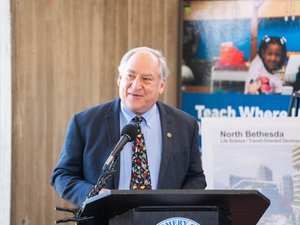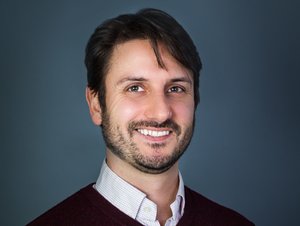Batteries essentially rule our world. Nowadays, you can't go anywhere without a charger in hand. Mobiles, computers, cars, they all require a battery. With such a necessity for the product, how do we make the vital component of almost everything we use more green? SafeLiCell is the solution.
Wednesday, June 20 marked the inaugural Green Chemistry & Engineering Conference, a business plan competition held by the American Chemical Society in Washington, DC. From June 19 to June 20, the event featured a series of panelists, participants, and virtual attendees all discussing the advancing role of green chemistry in government, business, and academia. Mian Khalid, a rising junior majoring in bioengineering and english from the Clark School at the University of Maryland, pitched his startup idea alongside prestigious and technologically advanced researchers at the conference.
With the help of his advisor, BioE professor Peter Kofinas, and Department of chemical and Biomolecular Engineering graduate student Aaron Fisher, Khalid founded SafeLiCell, a company bent on creating a safer battery for biomedical devices. As he explained through the live stream, "what my company does is make solid polymer electrolytes for safer lithium batteries. If you look at lithium batteries, they are conventional and used in your cell phones, cars and even laptops," but, as he went on, the problem with these lithium batteries is that they are highly flammable, but it's a hazard that can easily be fixed with SafeLiCell. Using a solid polymer electrolyte, Khalid revealed, is "safer and can eventually make your battery lighter and that's very, very advantageous."
With SafeLiCell, it is no longer necessary "to have any protective circuit for the battery. You don't have to have a bulky enclosure that can be based on a titanium casing or any heavy metal casings. If you remove that," he said, "you have less stuff to recycle. On top of it, if you have something that's not flammable, it's obviously easier to recycle that and you have less headaches to worry about."
When asked if he had advice for other aspiring entrepreneurs, Khalid responded with being "really, really confident in yourself and knowing that the hard work you do will lead somewhere." Though Khalid was the youngest participant in the competition by far, his confident public speaking skills made him seem more wise than his age gives away.
Placing second, Khalid was rewarded with a $10,000 prize for SafeLiCell, money which will be spent on large scale testing of the batteries, moving the startup from the pilot stage it's currently in to a more business-like setting.
Khalid and the rest of the SafeLiCell team are no strangers to the spotlight with a series of notable titles including second place in the $100K ACC Clean Energy Challenge where they acquired $15,000. Their Lithium Flex product has been a topic of conversation due to its flexibility and lack of corrosive materials. As a light, yet durable film, it seems like SafeLiCell's Lithium Flex has a great future.
[Video via ACS]




